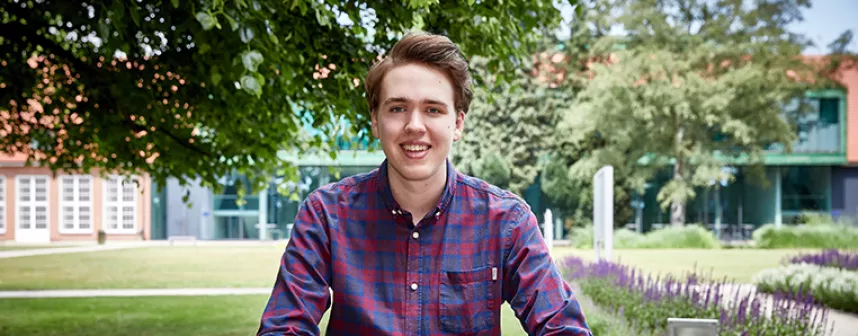High school graduation - and then?
June 12, 2019
When he was done with his final exams, he was overcome by a slight panic. "I had no idea what to do," recalls Elias Bosch. Start studying immediately? Or a time-out, a gap year? Elias didn't feel ready for the decision. He didn't want to "chill" for a year either, he wanted to do something. Only what? During an online search, the Upper Bavarian came across the Foundation Year, the orientation year at Jacobs University. Today, he says: "For me, this was the ideal intermediate step."
Elias Bosch belongs to a generation, which has to make groundbreaking decisions at a very early stage. At the age of 17, after twelve years at school, he graduated from high school in Bavaria and was released from the sheltered school life into a world of enormous possibilities: Go abroad, do an internship or vocational training, or choose one of the 9,000 or so bachelor's degree programs in Germany? "Many are overwhelmed by the decision," says Bannour Hadroug, Head of Student Marketing and Recruitment at English-speaking Jacobs University Bremen. "If you decide to study, you start something you don't know. The drop-out rate in Germany is therefore correspondingly high."
Elias' older siblings studied abroad, he was attracted by the internationality on the campus of Jacobs University with students from 111 countries, living together in one of the colleges and, of course, the two-semester program. It consists of compulsory introductory courses in natural sciences, economics or social sciences, in which students gain an insight into various subjects and become familiar with methods of academic work. After intensive personal consultation, they also take part in regular Bachelor courses.
"We are integrated into everyday university life and get a good insight into the life of the students and into the various subjects," says Elias. The learning groups are small, the contact to the professors is close, regular feedback discussions are part of the program. The students also have to write research papers and take exams. The credit points earned can be transferred to a possible later course of study.
There were 64 students in his class, Elias was one of seven Germans, and he shared his room with an Indian. Elias says laughingly that he has definitely perfected his English during his year on campus. And not only that: "It's now much clearer to me what I want." Elias wants to study international relations. He has applied for a place at several universities, including Jacobs University. "It’s most likely that I will continue my studies here."
More information:
Interested parties can inform themselves about the offer in a workshop on the admission day (Zulassungstag) of Jacobs University on 6/7 July 2019.
Registration and further information: https://www.jacobs-university.de/study/foundation-year and https://www.jacobs-university.de/zulassungstag/workshop
